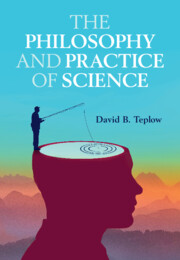Book contents
- Frontmatter
- Dedication
- Dedication
- Contents
- Foreword
- Foreword
- Preface
- Acknowledgments
- 1 Introduction
- 2 Defining Science
- 3 Learning Science
- 4 Development of the Scientific Method: From Papyrus to Petaflops
- 5 Science in Practice
- 6 Science as a Social Endeavor
- 7 Epilogue
- Appendix A: A Simple Question with Profound Implications
- Appendix B: Chaos in the Brickyard
- References
- Index
2 - Defining Science
Published online by Cambridge University Press: 17 September 2023
- Frontmatter
- Dedication
- Dedication
- Contents
- Foreword
- Foreword
- Preface
- Acknowledgments
- 1 Introduction
- 2 Defining Science
- 3 Learning Science
- 4 Development of the Scientific Method: From Papyrus to Petaflops
- 5 Science in Practice
- 6 Science as a Social Endeavor
- 7 Epilogue
- Appendix A: A Simple Question with Profound Implications
- Appendix B: Chaos in the Brickyard
- References
- Index
Summary
If one reads about science, writes about science, or teaches science, one should know about the whats, hows, whens, and whys of science. What is science? How is it done? When is science needed? Science seeks to understand and systematize the natural world. It does so experimentally, using test tubes, computers, and animals (including humans), among other things. Curiosity and necessity drive science. Since ancient times, people have wanted to understand and then manipulate their world. For example, science has provided the means to painlessly and noninvasively look into the human body through the development of X-rays, magnetic resonance imaging, computed tomography, and scintigraphy (radioisotopes). Electronics and materials science have enabled creation of cell phones. Chemistry has given us therapeutic drugs, Teflon, and Velcro. Physics and engineering have taken us to the Moon, Mars, and beyond. This broad scope of science makes it difficult, but not impossible, to define. This chapter provides a holistic view of science.
Keywords
Information
- Type
- Chapter
- Information
- The Philosophy and Practice of Science , pp. 8 - 17Publisher: Cambridge University PressPrint publication year: 2023
